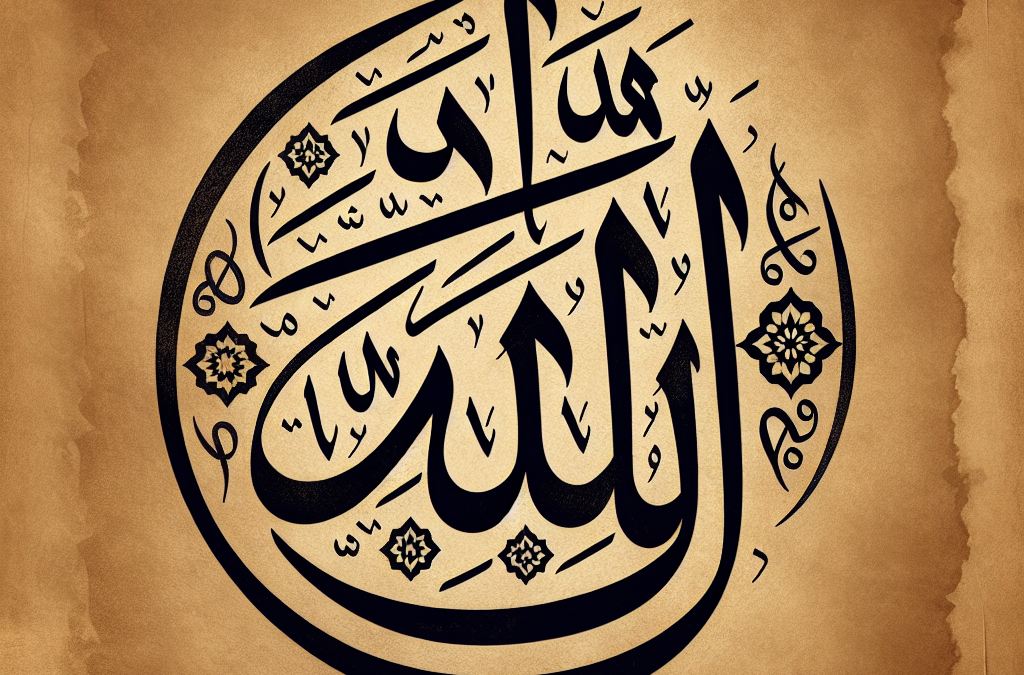
The education system of the madrasa in South Asia
January 3, 2024
The ritual of ‘Aqiqah
January 14, 2024Islam is a monotheistic religion that is based on a structure of beliefs closely intertwined with the daily practice of its followers. The concepts of 'aqida and iman represent, respectively, the intellectual basis and emotional expression of faith and its manifestation in everyday life. Islamic faith requires unconditional certainty in Allah, in His angels, in His books, in His messengers, and in the Day of Judgment, free from any doubt. The Quran is considered an unalterable source of faith for Muslims, encouraging them to base their faith on an immutable and unaltered source.

Islam, as a monotheistic religion, articulated and rich in nuances, proposes a structure of beliefs that are closely intertwined with the practice and daily behavior of its followers. The concepts of 'aqida' and 'iman' are central to Islamic spiritual life, representing, respectively, the intellectual and emotional basis of faith and its concrete expression in everyday life.
Il Credo Islamico (‘Aqida)
The term " ‘aqida", which refers to the "creed in Islam", derives from the Arabic root meaning 'to bind' or 'to consolidate'. This highlights the role of "‘aqida" as a solid foundation, a kind of intellectual and spiritual anchor. In Islamic creed, " ‘aqida" represents the purity of belief in the singularity of Allah and in the truth conveyed by His messengers. This corresponds to a set of beliefs that, although not actively practiced through specific rituals or actions, are inwardly embraced and guarded by the heart and mind of the believer. By establishing the unalterable foundations on which the edifice of faith rests, "‘aqida" serves as a catalyst for an authentic understanding of the divine and all that follows in the cosmos of Islam.
Islamic Faith (al-Imàn)
The term iman, or faith in the Islamic context, transcends the mere intellectual and emotional acceptance expressed by "‘aqida", extending beyond towards a tangible manifestation that permeates an individual's thoughts and actions. It is argued that faith is alive and dynamic, evidenced not only by the beliefs residing in the heart and mind, but also by adherence to the five pillars of Islam: the declaration of faith (shahada), prayer (salat), almsgiving (zakat), fasting during the month of Ramadan (sawm), and the pilgrimage to Mecca (hajj). The strength of these internal "roots" determines the vitality of the "tree" of faith, influencing the generosity of actions, spiritual resilience, and the ability to produce beneficial "fruits" for oneself and the community. From this perspective, faith is not static but deepens with knowledge, strengthens through practice, and expands through charitable action.
Muslim Scholars say: 'faith [al-Iman] is to believe with certainty in what is unseen, expressed with the tongue, and to respect the pillars of practice.' So, for simplicity, we can say that faith is the roots of a tree, actions are the branches, leaves, and fruits. And the tree as a whole constitutes faith - al-Iman. This means that if the roots are small or weak, the entire tree will be weak and will not produce dense foliage or many fruits. When, on the other hand, the roots are firm and well-rooted in the ground, the foliage will be lush, its fruits numerous, and it will be a solid tree."
But what does faith consist of?
To the same question, the Messenger of Allah answered: '[Faith is] that you believe in Allah, His angels, His books, His messengers, and the Last Day, and that you believe in the divine decree, both the good and the bad' (Muslim 8).
And in the Quran we find: «The Messenger believes in what has been revealed to him from his Lord, and [so do] the believers. All of them believe in Allah, His angels, His books, and His messengers» (Quran 2:285).
The pillars, also known as articles, of the Islamic faith listed in the hadith and the verse."
Certainty in Faith.
In the context of Islamic faith, certainty is a crucial element, representing a non-negotiable condition of true faith. Unconditional belief in Allah, His angels, His books, His messengers, and the Day of Judgment, as well as in destiny, whether positive or negative, must be f free from any doubt. To be considered part of the community of believers, one must embrace divine revelation as an unquestionable and unchangeable truth. This aspect differentiates faith, understood as total and incontrovertible acceptance of divine will, from opinion, which is personal and subject to uncertainties and interpretations. The presence of doubts or uncertainties, in fact, distinguishes disbelief or doubtful conviction that does not meet the requirements of complete faith.
The Quran as a Source of Unaltered Faith
The Quran plays a primordial role as an unalterable source of faith for Muslims. As the literal word of Allah, the Quran is preserved from any form of corruption or human alteration, according to the tradition that Allah Himself safeguards its essence and integrity.
«We have sent down the Reminder, and We are its guardian» (XV:9).
This sacredness of the text encourages the faithful to seek truth and divine guidance outside of philosophical constructs and conventional interpretations that may be susceptible to the changes of time and culture. Therefore, the Quran serves as a compass guiding believers toward an authentic understanding of what it means to have faith and how this should be expressed in everyday life.
Editorial





